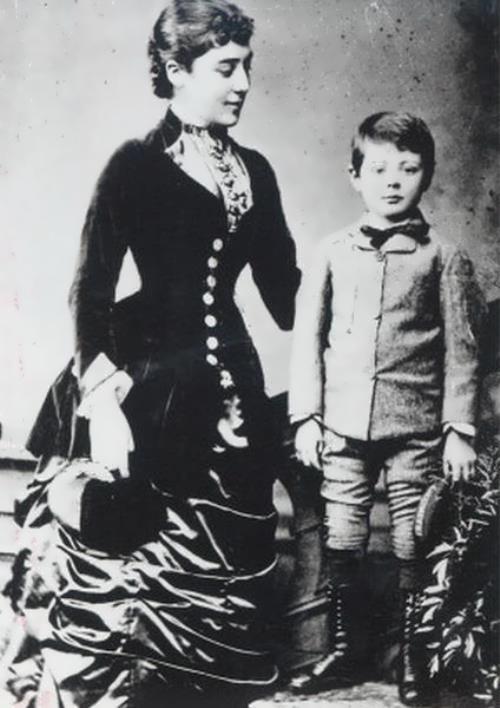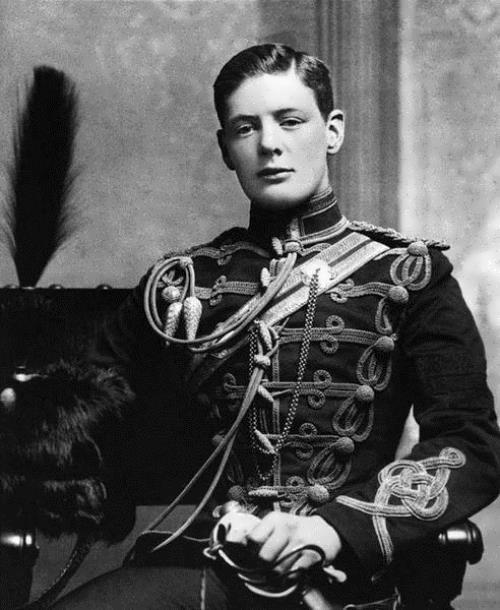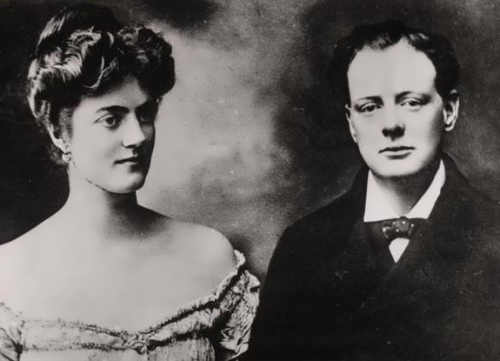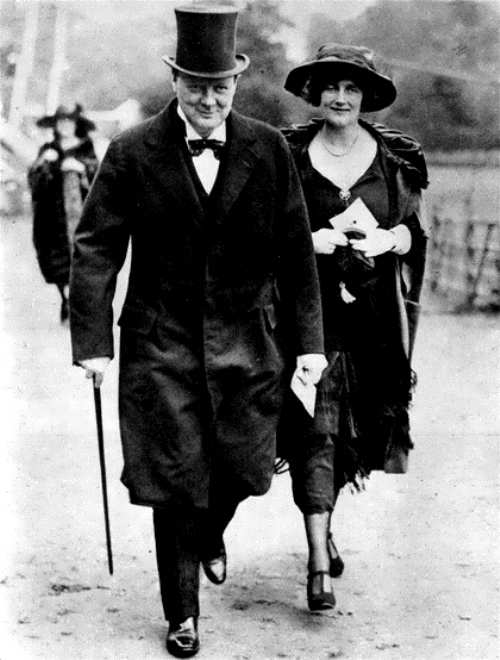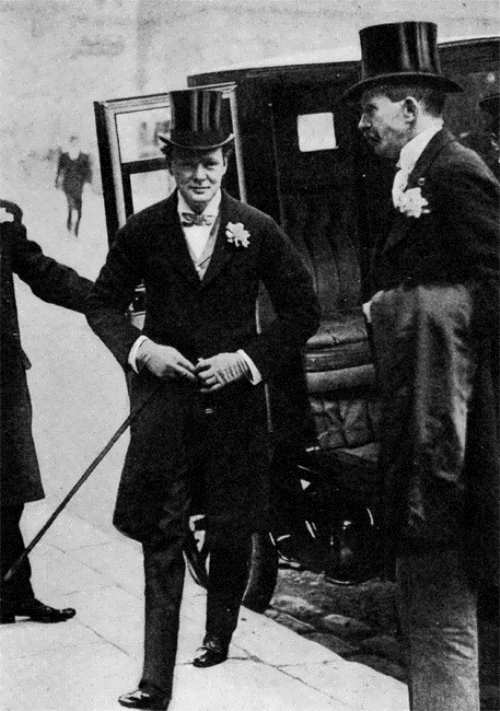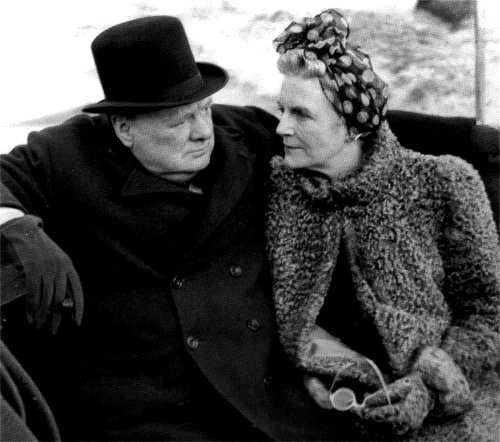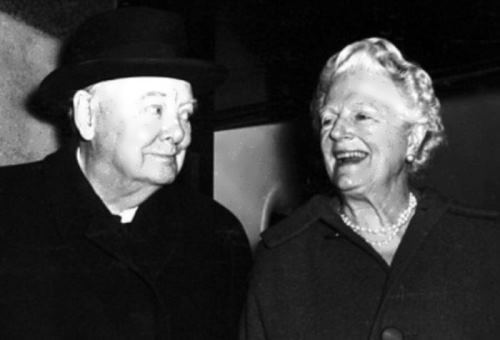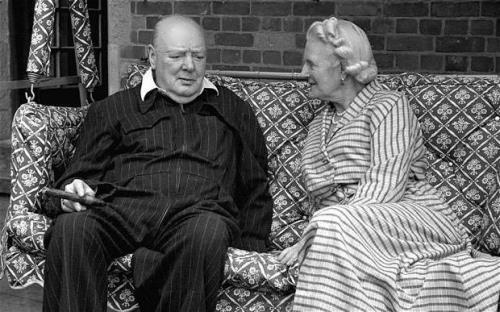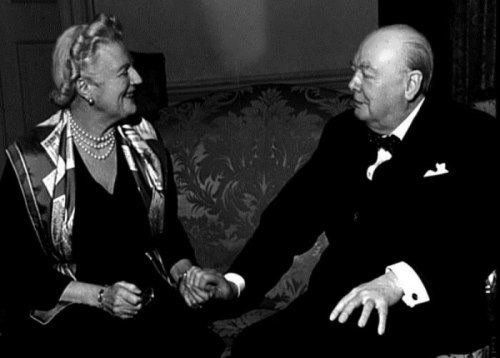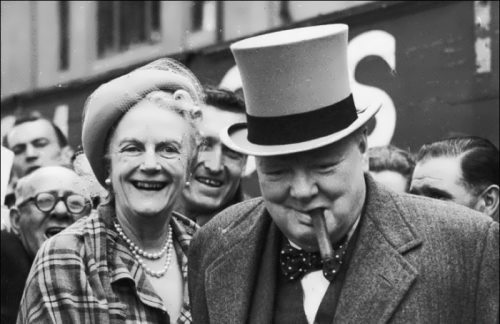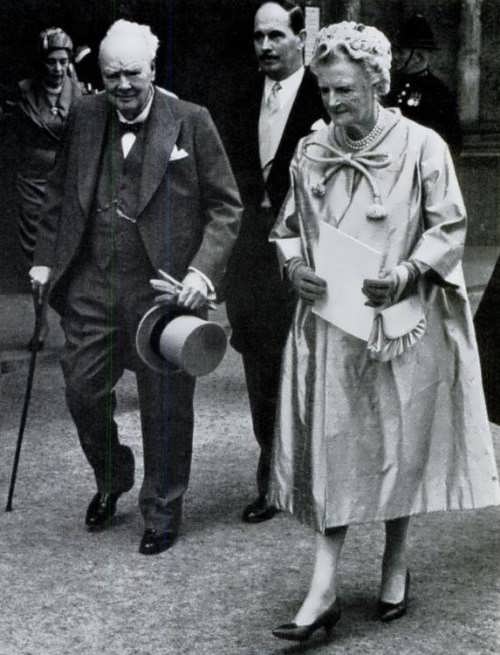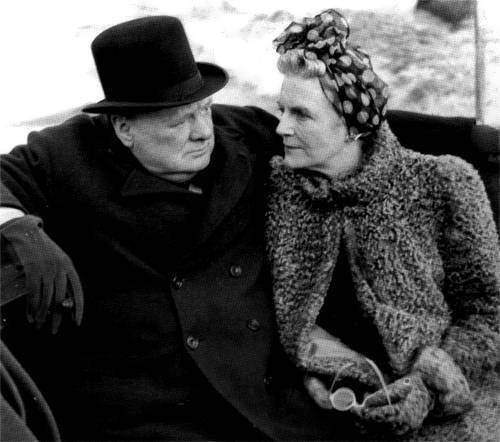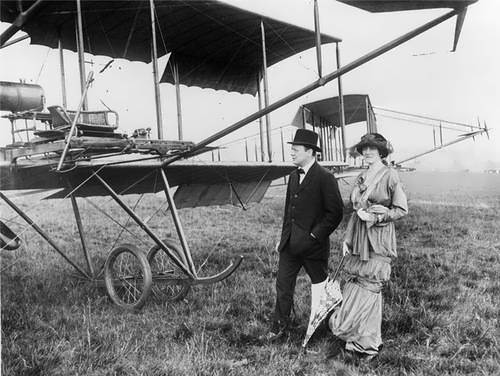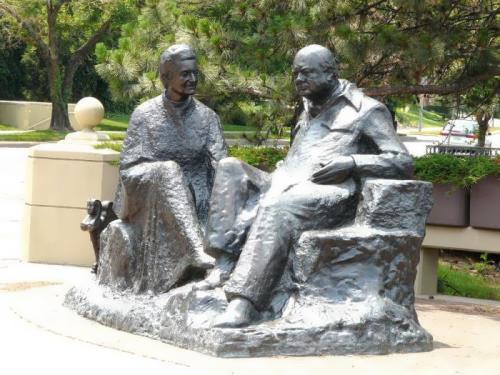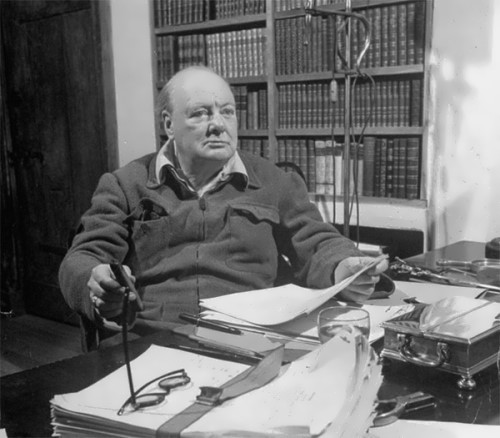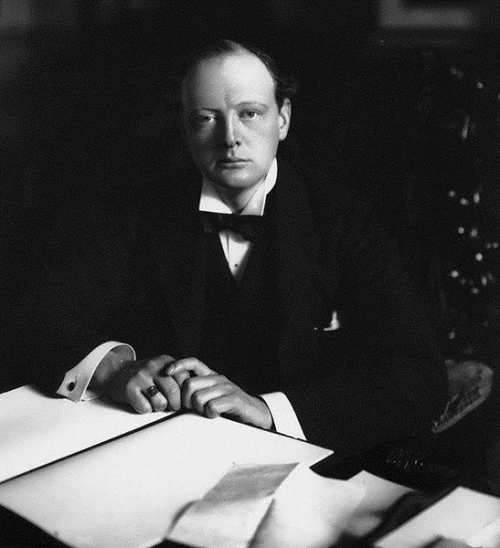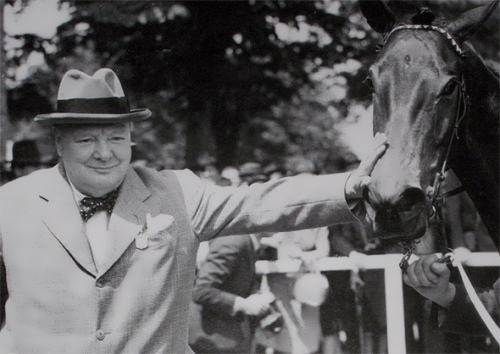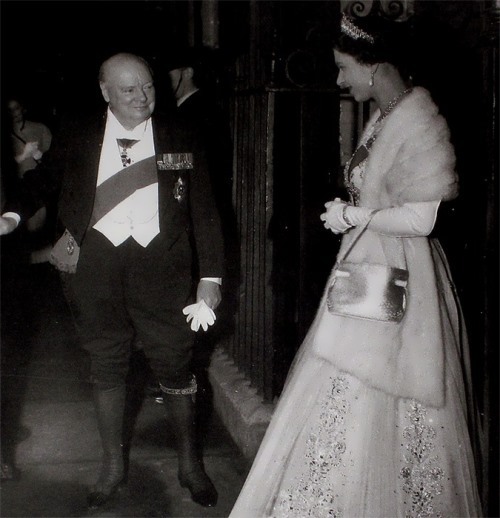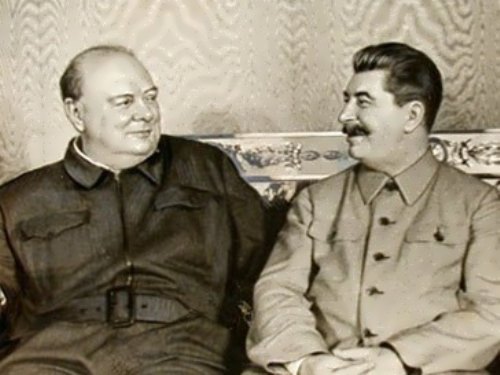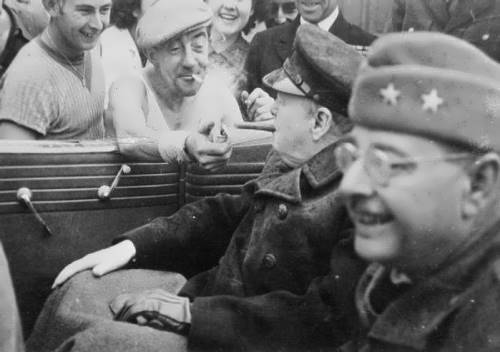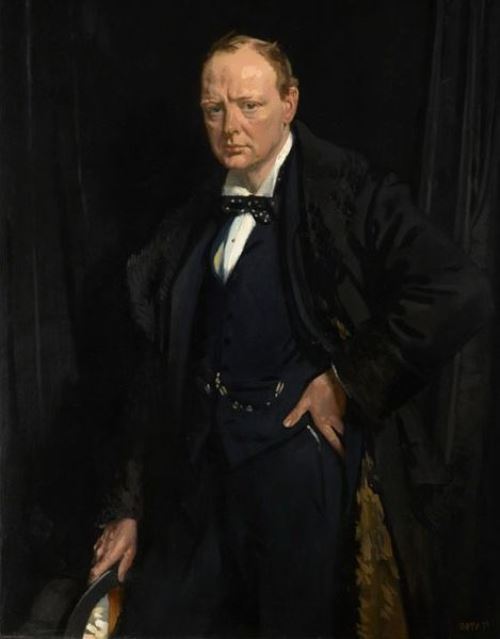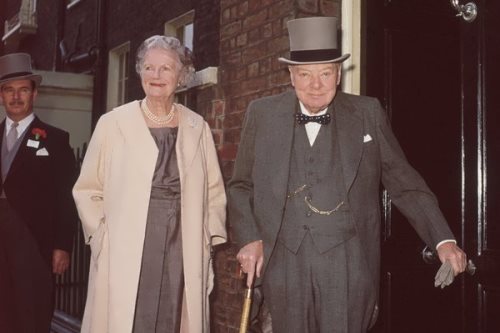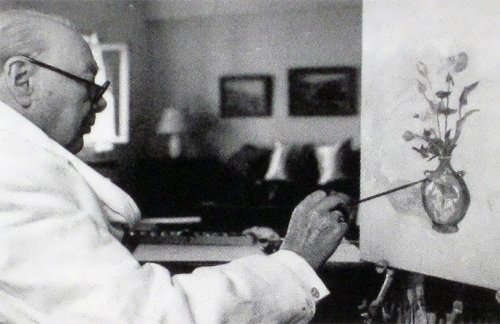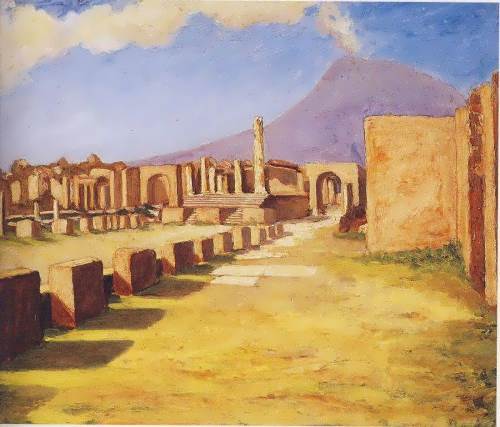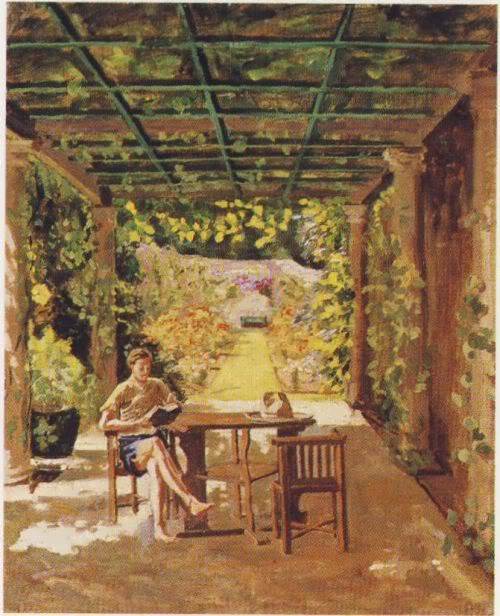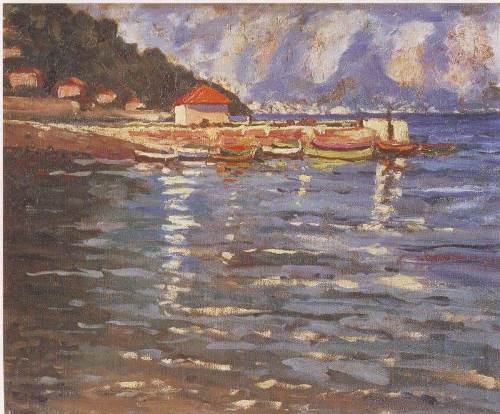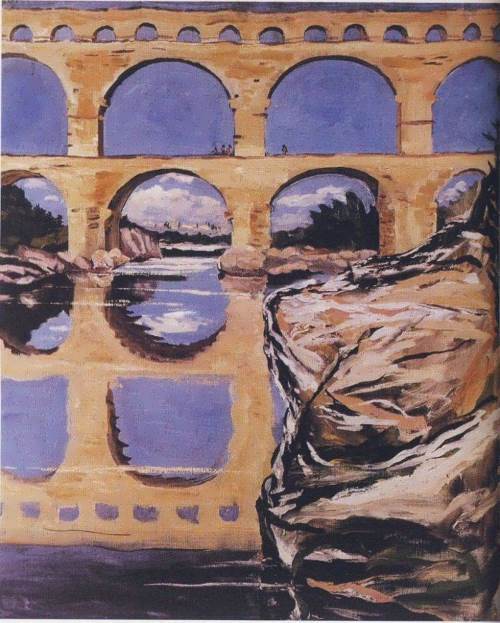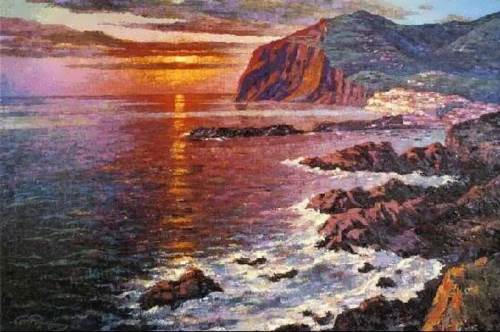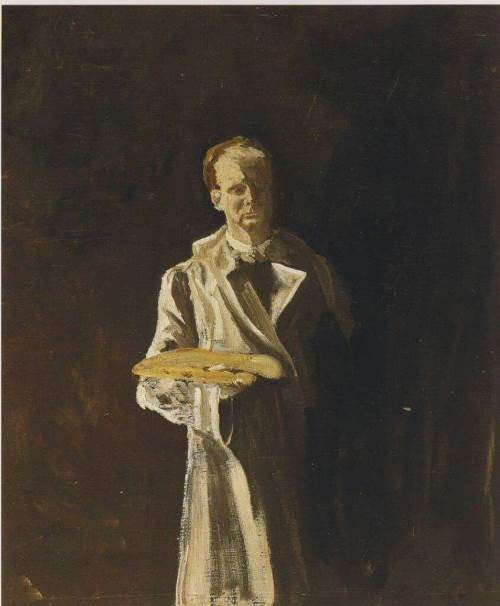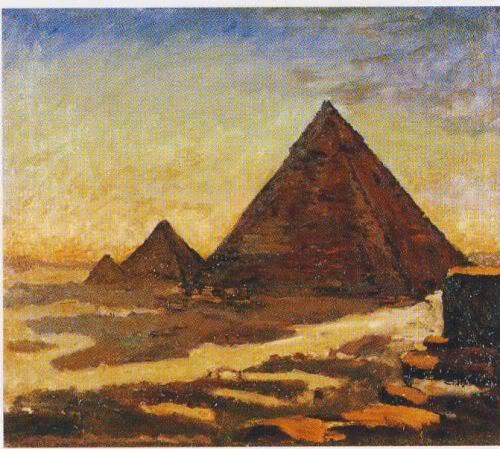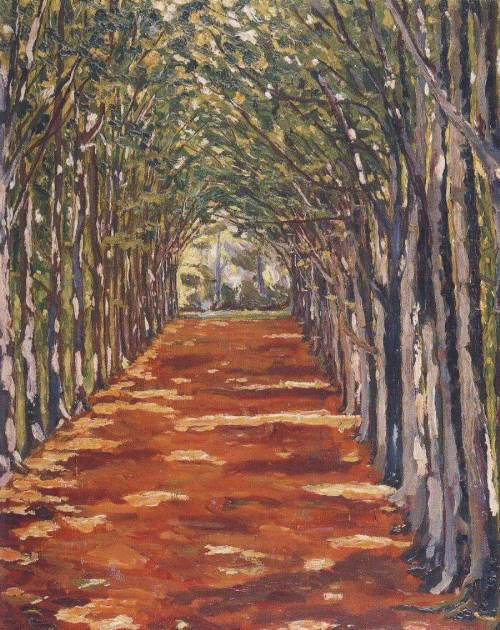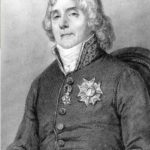Winston Churchill – British prime minister
Winston Churchill was the Prime Minister of the United Kingdom during World War II. He was one of the greatest public speakers of his time and Nobel laureate for literature.
Winston Leonard Spencer Churchill was born on November 30, 1874, in Oxfordshire, England. He was the eldest son of Lord Randolph Churchill, a Tory Democrat who achieved early success as a rebel in his party. His mother was Jenny Jerome, the beautiful and talented daughter of Leonard Jerome, a New York businessman.
He studied at Harrow and the Royal Military College at Sandhurst.
In 1895 Churchill entered the British Army. In 1899 he joined the Conservatives, a British political party. His political career began as a member of the House of Commons in 1900.
In 1908 Churchill joined the top rank of government leaders, called the Cabinet. In 1911 he was appointed lord of the admiralty in the ministry of Herbert Asquith (1852-1928) and undertook the modernization of the Royal Navy.
In 1912 Churchill became first lord of the Admiralty.
Churchill became prime minister in May 1940. Soon after he took office, the Germans bombed Britain. In 1945 Britain and its allies—the United States, France, and the Soviet Union—won the war.
After the war Churchill lost his position as prime minister. In 1951 he became prime minister again. In 1953 he received the Nobel Prize for literature for his six-volume work The Second World War (1948-53).
In 1955 Churchill retired as prime minister.
In 1963 the United States made him its first honorary citizen.
Churchill died in London on January 24, 1965.
In his lifetime Churchill was bestowed with many honors. He became Sir Winston Churchill after becoming a Knight of the Garter in 1953. For his contribution to European ideals he was awarded the Karlspreis award by the city of Aachen, Germany, in 1956. The U.S. government made him an honorary citizen in 1963.
Winston Churchill, a renowned politician and statesman, was fond of painting. He began painting at the age of 40 and created more than 500 paintings! This passion helped Churchill to get rid of depression, forget about all the squabbles and troubles of “big politics”.
Winston painted everywhere: at home, in Britain, and during numerous trips to different countries. He painted portraits and interiors, but especially he loved to go out and paint landscapes.
In 1921, Churchill sent a few of his pictures to the international exhibition in Paris and six of them were awarded by the jury. And in 1925 at the non-professional artists exhibition his picture (of course, no one had any idea about who was the author) took the first place! In 1948 Churchill became the Royal Academy of Arts.
The picture Koutoubia Mosque is one of his most famous works. It was painted as a gift to US President Franklin Delano Roosevelt. Churchill and Roosevelt attended a 10-day international conference in Casablanca in 1943. The only day they spent in the city of Marrakech, where this picture was painted. Churchill gave it as a present to Roosevelt in the name of friendship and peace in the world. While the American president was alive, the picture was in his house, located in New York’s Hyde Park.
Churchill and Clementine
He was one of the key figures in world history – a politician who influenced the fate of the XX century. She was only his wife. When Winston Churchill got married, he said it was the happiest day in his life. They lived in love and harmony for 57 years. But fate could not bring them together.
Churchill wasn’t very successful with women. This powerful, strong man often could not utter a word with girls.
Lady Plowden became one of his first serious passions. The young daughter of an English resident in India impressed the future politician with her beauty. But … the capricious and fickle young lady rejected his feelings. Winston suffered greatly.
Clementine Ogilvy was nine years younger than Winston. She was well educated, spoke German and French, had an analytical mind, an excellent sense of humor, and was keenly interested in politics.
They met each other at one of the balls in London. Churchill stared at the 19-year-old Clementine. However, he could not dance and another man invited the beauty to dance.
After long four years, in 1908, they met each other again and became friends. After five months of courtship, Winston invited his beloved to his relatives. While they wandered along the alleys of the rose garden, a thunderstorm broke out, and a heavy rain forced them to hide in the temple of Diana. For half an hour they sat in silence. The atmosphere was heated. Clementine glanced down and saw a slowly crawling beetle. In her head flashed: “If this beetle crawls to the crack, and Winston does not make me an offer, then he will not do it ever.” Churchill beat the beetle!
A few days later, on August 15, 1908, Deputy Minister Churchill announced an engagement.
Their wedding was a great social event in London. It took place at St. Margaret’s Church in Westminster.
In his memoirs, Churchill wrote: “I married in September 1908 and have lived happily ever since.” Clementine shared with Winston all the worries, tirelessly supported him, and showed a keen interest in his activity. She became his best and closest friend and adviser. Clementine was the only person who could cope with the riotous nature of Churchill.
When they were far from each other they wrote tender letters. In total, 1700 letters and postcards were written. Their youngest daughter Marie then published these lines of love.
His wife was a lark, and he was an owl. That’s why they never had breakfast together. Churchill once said that joint breakfasts were a test that no one family union could withstand. By the way, they also slept in different bedrooms.
Clementine lived 12 years longer than Churchill and repeated: “I want to be with him …” Clementine was buried next to her husband in a cemetery in Woodstock, Oxfordshire.
Churchill and Clementine
Here are some of his quotes:
– A pessimist sees the difficulty in every opportunity; an optimist sees the opportunity in every difficulty.
– All the great things are simple, and many can be expressed in a single word: freedom, justice, honor, duty, mercy, hope.
– I am always ready to learn although I do not always like being taught.
– A fanatic is one who can’t change his mind and won’t change the subject.
– I am fond of pigs. Dogs look up to us. Cats look down on us. Pigs treat us as equals.
– If you are going through hell, keep going.
– Never give in, never give in, never, never, never, never, in nothing, great or small, large or petty, never give in except to convictions of honor and good sense.
– By swallowing evil words unsaid, no one has ever harmed his stomach.
– A joke is a very serious thing.
– Courage is rightly esteemed the first of human qualities… because it is the quality which guarantees all others.
– You have enemies? Good. That means you’ve stood up for something, sometime in your life.
– It has been said that democracy is the worst form of government except all the others that have been tried.
– Short words are best and the old words when short are best of all.
– It is a fine thing to be honest, but it is also very important to be right.
– There are a terrible lot of lies going about the world, and the worst of it is that half of them are true.
– Success is not final, failure is not fatal: it is the courage to continue that counts.
– He has all the virtues I dislike and none of the vices I admire.
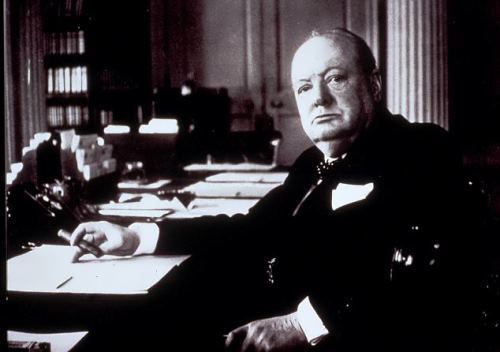
When Churchill became prime minister, he said, “I have nothing to offer but blood, toil, tears, and sweat.”
Sources:
Britannica Student Encyclopedia
Encyclopedia of World Biography
Winston Churchill – British prime minister
Paintings by Winston Churchill

